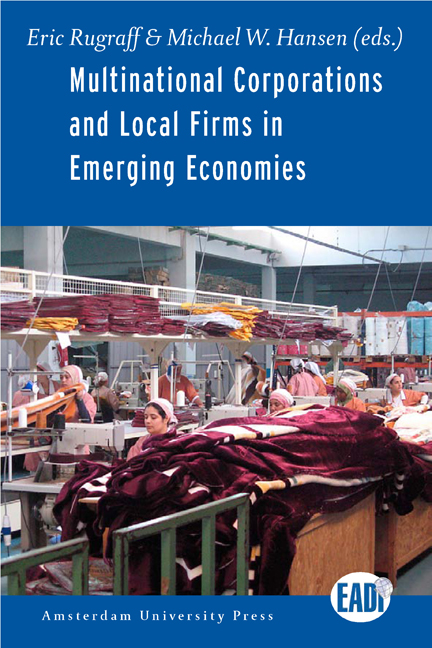3 - Do Multinational Companies Transfer Technology to Local Small and Medium-Sized Enterprises? The case of the Tegal Metalworking Industry Cluster in Indonesia
Published online by Cambridge University Press: 19 January 2021
Summary
Introduction
It is often argued that the key to increasing the competitiveness and productivity of small and medium-sized enterprises (SMEs) in developing countries is to build the capacities of these enterprises through improved technology. This technology development can take place internally (inside the firm) or can be fostered through access to outside sources, including transfer of technology from multinational companies (MNCs). Technology here is defined broadly including the product, process, as well as management skills.
There is a large body of literature on technology transfer, particularly from MNCs to firms in developing countries. However, very little work, especially empirical studies, has been done on technology transfer to SMEs in developing countries. Thus, with Indonesia as the case study, the main objective of this chapter is to fill this gap. It addresses the following two research questions. First, what role do MNCs play in technology transfer to SMEs in Indonesia? Second, under what conditions do MNCs play such a role?
Methodologically, this study is based on a review of key literature on technology transfer to Indonesia, and for its empirical part, a case study on the Tegal metalworking industry in Central Java was undertaken. For this case study, in-depth and semi-structured interviews and focus group discussions were conducted in Tegal district.
The structure of this study is as follows. Section II discusses the importance of MNCs as a source of technology transfer in Indonesia. Section III presents and discusses findings from the Tegal metalworking industry. Section IV gives concluding remarks.
Multinational companies in Indonesia
There is a large body of literature on channels through which technology is transferred internationally. The channels include: MNCs’ foreign direct investment (FDI); technical licensing agreements between foreign and local firms; imports of intermediate and capital goods; education and training in technologically advanced countries; turnkey plants and project contracts; technical consulting by foreign companies/consulting firms; and simply through participation in world trade (export).
From the developing countries perspective, given that MNCs opt to produce in these economies, they are the preferred route and are therefore a prominent channel of technology transfer. For Indonesia too, MNCs are a more attractive means of developing technology in their industries than is obtaining technical licenses or other sources.
- Type
- Chapter
- Information
- Publisher: Amsterdam University PressPrint publication year: 2011

